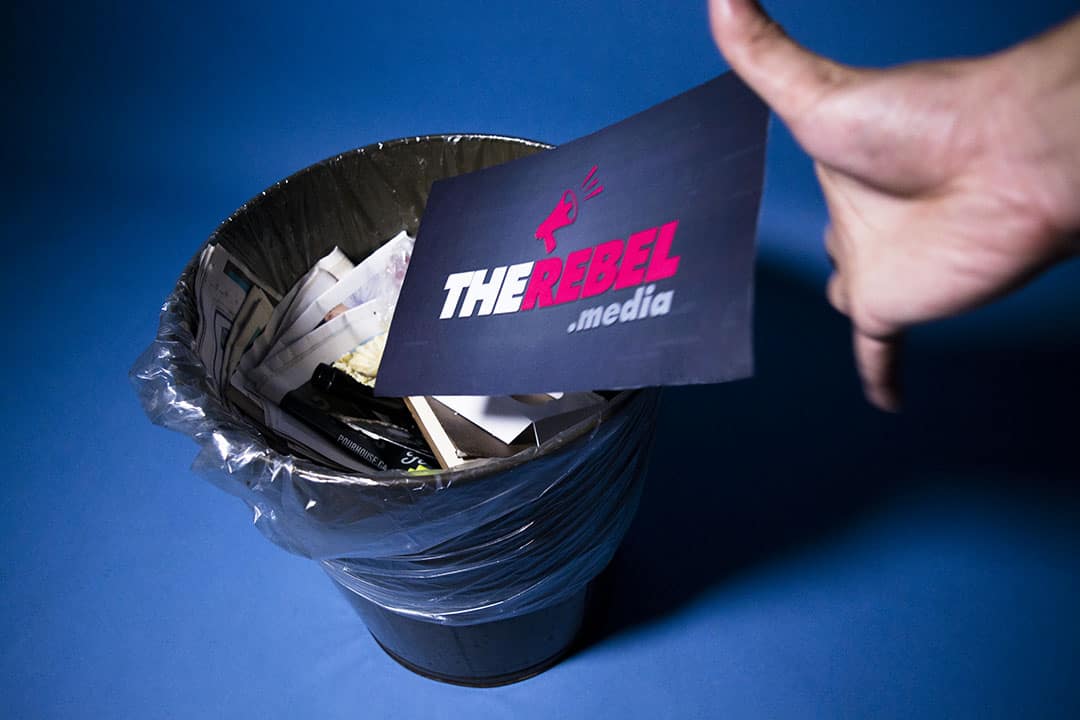At first I was pleased to see that an article entitled “On the importance of The Rebel Media” had been written for The Varsity — it seemed unusual to come across a defence of The Rebel published by The Varsity, an organization that I hold to be left-leaning.
However, when I read the article, I was somewhat distraught. The argument, as I understand it, is that The Rebel is important because it represents people who are “habitually” unrepresented, and that it adopts activist stratagems by mimicking the effective tactics of historical movements and asserting itself as an important interlocutor in dialogue.
To assert something is important, we have to give it value — otherwise its importance is completely baseless. The author, Gabrielle Warren, admitted that The Rebel is unapologetic and explicit in its ideological leanings, but omitted from her argument that the publication lacks journalistic integrity, a trait that overshadows any value we might assign the outlet on the basis of it representing certain views.
Since May, The Rebel has been the target of an advertising boycott led by Sleeping Giants, an activist organization opposed to the inflammatory writing of Ezra Levant and his minions. Companies like General Motors Canada and the Canadian Mint also pulled their ads off of The Rebel’s webspace after the outlet called for a crusade against Muslims in the “Holy Land” of Bethlehem and referred to British Muslims as “enemy combatants.”
Examining The Rebel’s content sheds further light on the reasons it has faced backlash from so many individuals and organizations. Consider its treatment of the Syrian refugee crisis: in an online article — with the frivolous words “Truth about Refugees” occupying a large swath of webspace in large bold letters — Levant said some blatantly bigoted things about Syrian refugees.
“31% of Syrian refugees disagree with the objective of defeating the Islamic State terrorist group,” Levant writes. “So out of 25,000 refugees, 7,500 will be ISIS lovers. 41% are Jew-hating, America-hating bigots. 97% are gay-hating, probably women-hating bigots.”
To support this argument, Levant cited a study produced by the Arab Center for Research and Policy Studies, in which only 900 refugees were polled on questions relating to topics mostly concerning their views on the Islamic State and threats to Arab regional security. The Syrian population is roughly 18–19 million people, rendering this sample size an infinitesimal 0.005 per cent of the overall Syrian population and approximately 0.02 per cent of the estimated 5,000,000 Syrian refugees.
Furthermore, while condemning 41 per cent of the Syrian population as “American-hating bigots,” Levant failed to mention that the study found 32 per cent of Syrian refugees strongly support the international coalition airstrikes against ISIS. This misleading portrayal should give you a rough idea of the quality of groundbreaking journalistic analysis happening at The Rebel.
The Rebel’s website is a cornucopia of bad journalism, so it’s easy to find examples of their poor standards online. Then-Rebel writer Lauren Southern spread misinformation about the identity of the Québec City mosque shooter without all the facts. Last week, The Rebel ran a post entitled “Embracing Segregation at University Graduation” in response to an all-Black graduation ceremony at U of T. The Rebel chose to withhold the fact that it was a group of students holding this ceremony, not the university itself, presumably because this would not align with its “segregation” narrative.
Considering these shortcomings, asserting that The Rebel is an important organization because it represents a fringe minority is misleading. There is no value in what The Rebel does from a journalistic perspective, and this has nothing to do with its politics. My charge would be the same even if The Rebel were a left-wing organization; it is equally contemptible for leftist media outlets to obfuscate facts and compromise journalistic integrity in order to obtain clicks and push a particular agenda.
The Rebel launders popular opinion as its own political narrative. In other words, it is opportunistic — and opportunism, by definition, is the antithesis of principle.
Why should we set the bar so low — and why should we legitimize organizations that actively delegitimize themselves?
I don’t refute The Rebel on grounds of free speech. Warren is right to say we ought to allow all opinions and matters to be discussed, for the sole reason that individuals who trade in the free market of ideas will determine the legitimacy of an argument based on standards of reason. Indeed, in his work “On Liberty,” John Stuart Mill argues that when you deny someone the right to speak, you deny not only the right of the speaker, but your own ability to hear and consider other opinions.
However, if we are interested in legitimacy and truth, we ought to hold journalism to a higher standard; after all, journalism is a medium by which the truth can be disseminated. In this sense, The Rebel, being absolutely ideologically driven in its agenda, makes no valuable contributions to the journalistic world — with one exception: The Rebel serves as a reminder of how political extremism, on both sides of the spectrum, is detrimental to the pursuit of truth, a pursuit that should not be traded for fabricated, reactionary rhetoric.
Barbod Pournajar is an incoming third-year student at Woodsworth College studying Political Science.


